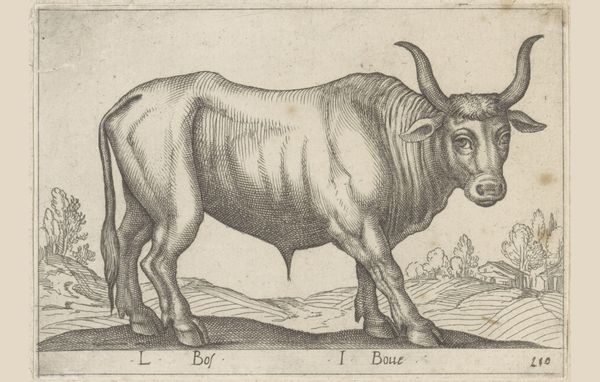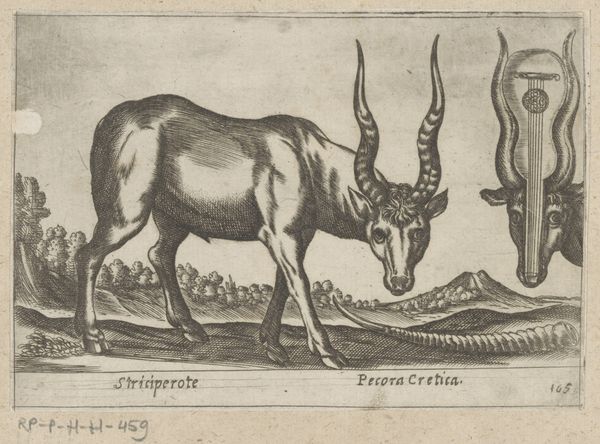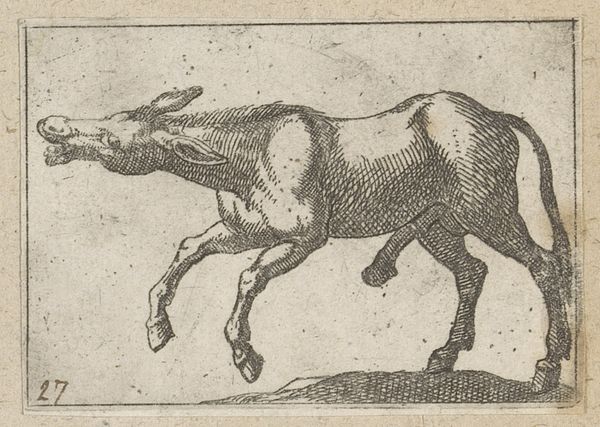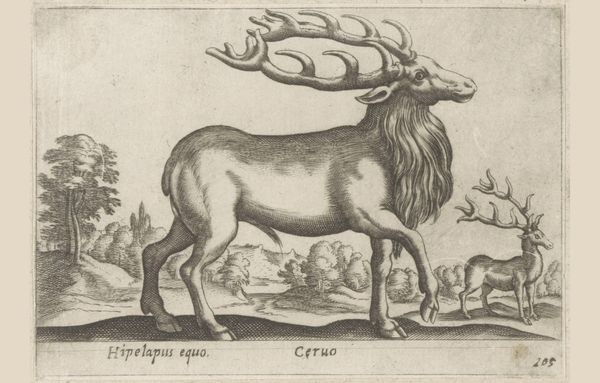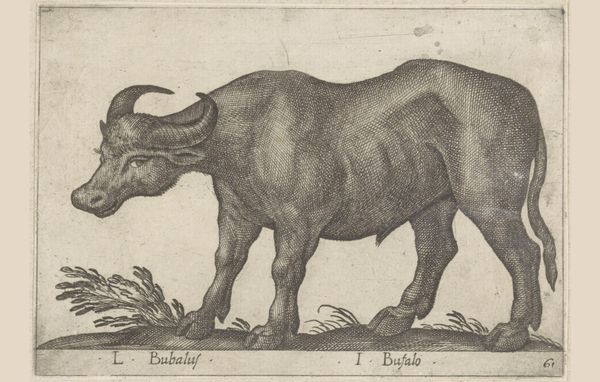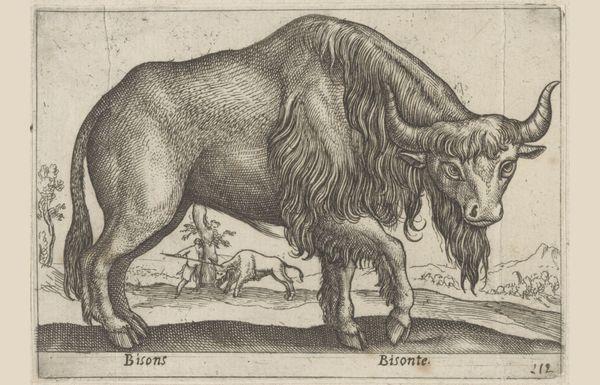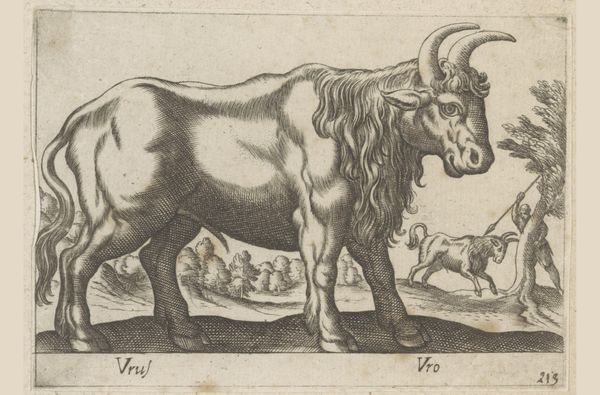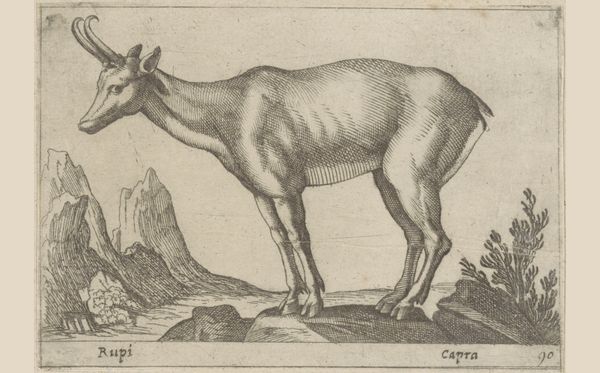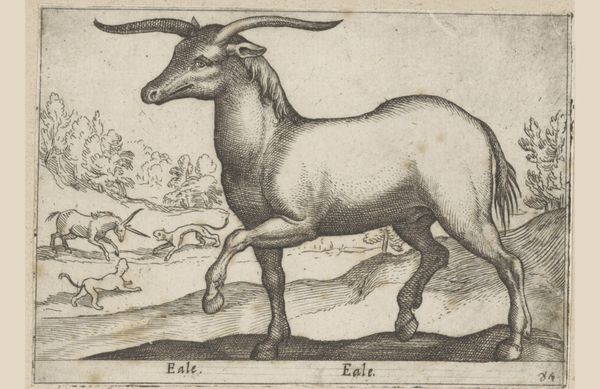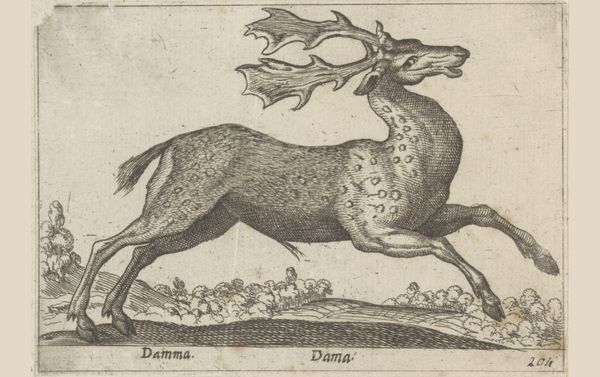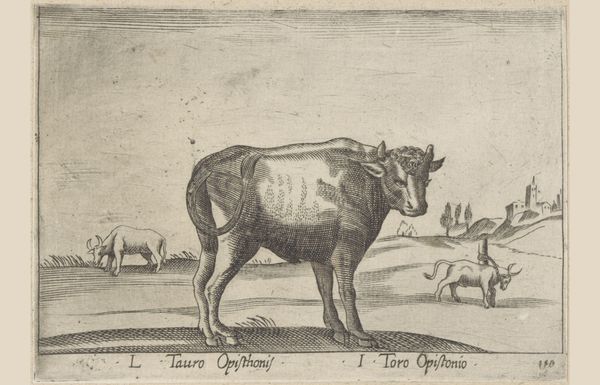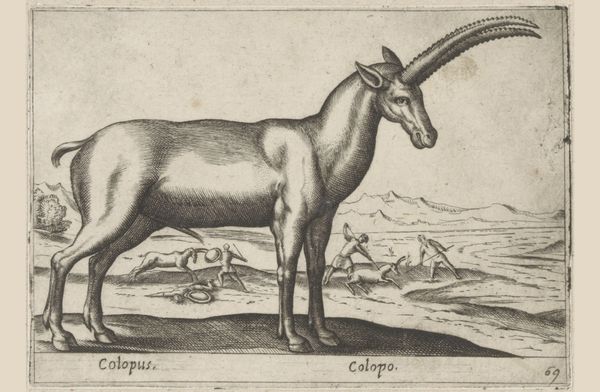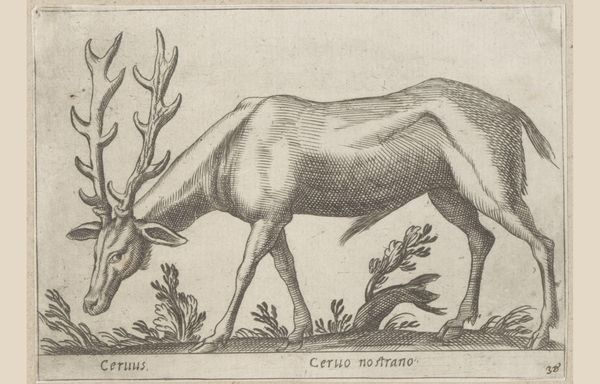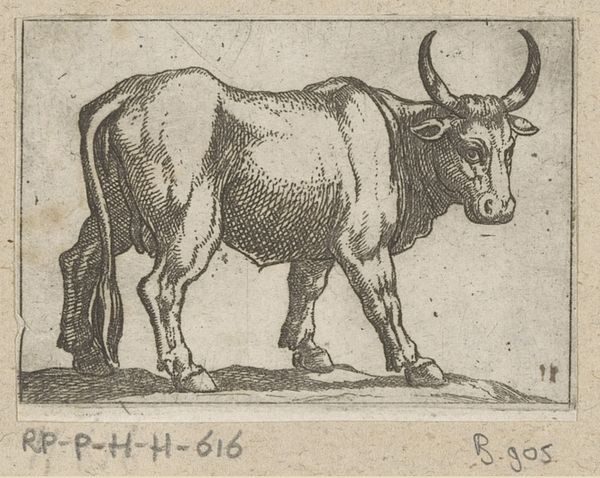
print, engraving
#
baroque
#
animal
# print
#
landscape
#
figuration
#
line
#
engraving
#
realism
Dimensions: height 95 mm, width 137 mm
Copyright: Rijks Museum: Open Domain
Antonio Tempesta made this engraving of an Eland sometime between 1575 and 1630. The image is printed from a metal plate, likely copper, into which the design was incised using a tool called a burin. Look closely, and you can see how the density of the lines describes the animal’s form, creating areas of light and shadow. This was a highly skilled process. The engraver would need years of practice to master the control of line weight and spacing required to achieve such detail. It is important to remember that prints like this one were commercial products. Tempesta would have been working within a well-established system of production, selling his designs to a ready market. The image could be reproduced many times over, allowing for wide distribution and consumption. Thinking about this print in terms of its material and making helps us to appreciate the historical context in which it was created, and to move beyond traditional distinctions between art, craft, and commerce.
Comments
No comments
Be the first to comment and join the conversation on the ultimate creative platform.
